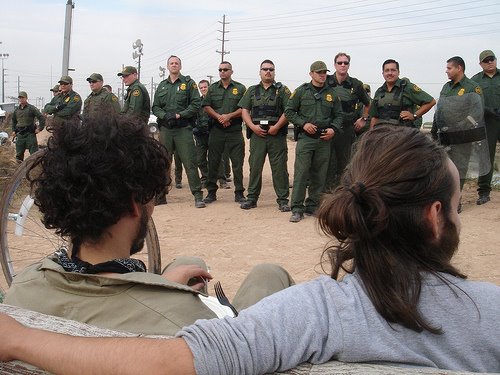Detention Watch Network
An Urgent Need for Immigration Reform in the United States
Washington DC, August 4, 2010
The Inter-American Commission on Human Rights, an autonomous organ of the Organization of American States, made public on August 02, 2010, its groundbreaking decision in the case Wayne Smith and Hugo Armendariz et al, v. United States. The Commission found that U.S. deportation policy violates fundamental human rights because it fails to consider evidence concerning the adverse impact of the destruction of families, the best interest of the children of deportees, and other humanitarian concerns.
Mr. Wayne Smith and Mr. Hugo Armendariz, lawful permanent residents of the United States for 25 and 35 years respectively, were deported from the United States for non-violent criminal offenses that had occurred many years prior. They were deported without any opportunity to present evidence of their rehabilitation, their family situation, and the equities in their favor. The refusal to consider this evidence led to substantive violations of the rights of their U.S. citizen family members to establish a family. The United States government also violated the special protections that should be accorded to children who are affected by deportation proceedings.
The Center for Justice and International Law (CEJIL), the law firm of Gibbs Houston Pauw, and the Center for Global Justice at Seattle University School of Law, legal representatives in the case, call upon the U.S. government to repeal its policy of mandatory deportation and provide comprehensive immigration legislation that protects human rights. “Under the current immigration regime, in many cases judges have no choice but to order deportation. This is the case in spite of the atrocious effects deportation has on the U.S. citizen family and children. This broken system offers judges no opportunity to keep families together”, said, Vivana Krsticevic, CEJIL’s Executive Director.
In this significant decision, the IACHR determined that when a decision-making process involves the potential separation of a family, there must be a hearing in which the judge accepts evidence and applies a “balancing test”, whereby the destruction of family life may be justified only where there is a more compelling need to protect the public order. The Commission found that “a balancing test is the only mechanism to reach a fair decision between the competing individual human rights and the needs asserted by the State.” According to the decision, the U.S. should allow Wayne Smith and Hugo Armendariz to return to the U.S. to be reunited with their families, and they should be given an opportunity to have their day in court – something that they were denied under the current U.S. deportation policy.
“This decision makes clear that there is an urgent need for immigration reform,” said Robert Pauw, lead attorney in the case. “New legislation should prioritize the best interests of U.S. citizen children and the unification of families. Deportation should be reserved for those individuals who present a real danger to our society.”
CEJIL believes that the United States’ compliance with its international human rights obligations is critically important for the U.S., its citizens and residents, and the world. Even in strong democracies with longstanding commitment to the rule of law, human rights treaties serve to safeguard fundamental rights. All Americans benefit when the U.S. commits to upholding certain basic standards of human dignity, and then takes concrete steps to meet these obligations.
Download the PDF of the report of the Inter-American Commission on Human Rights on Wayne Smith and Hugo Armendariz et al, v. United States.

No comments:
Post a Comment